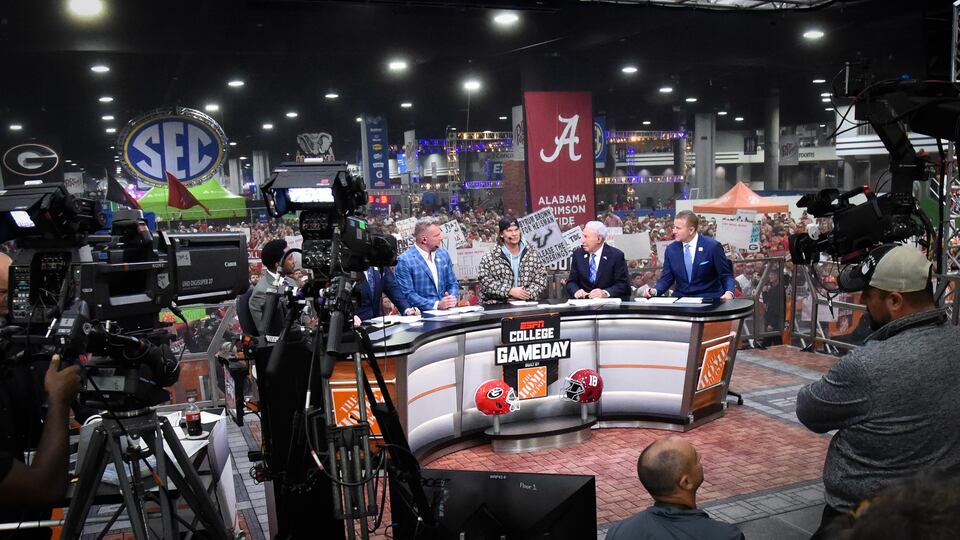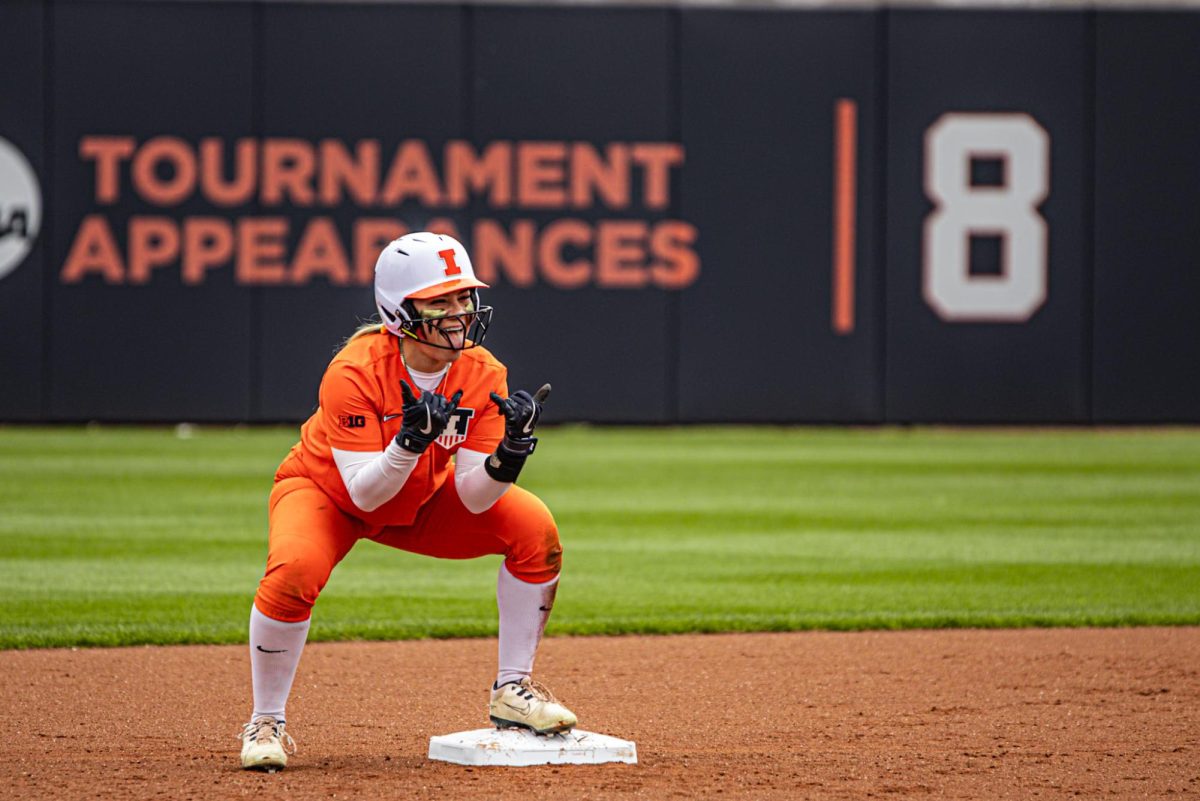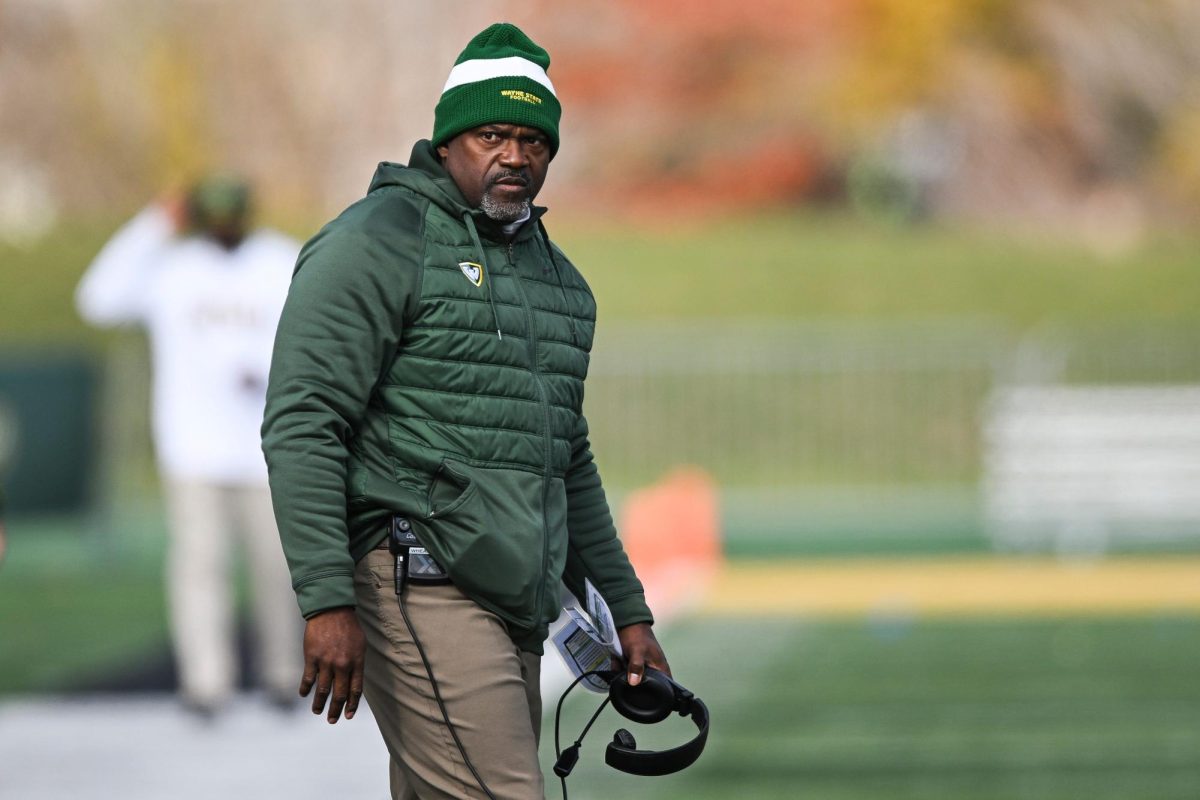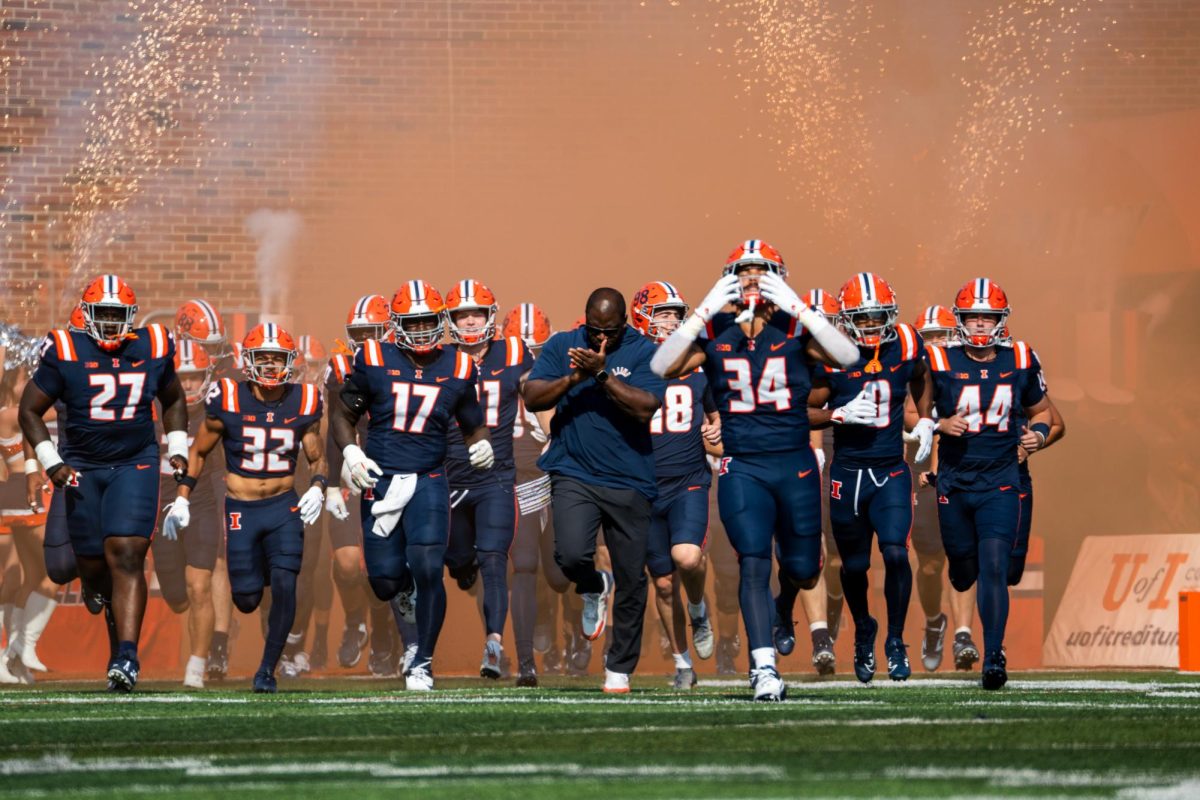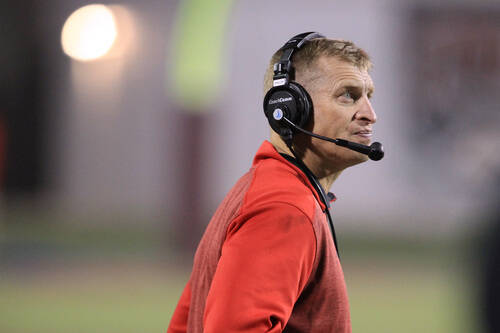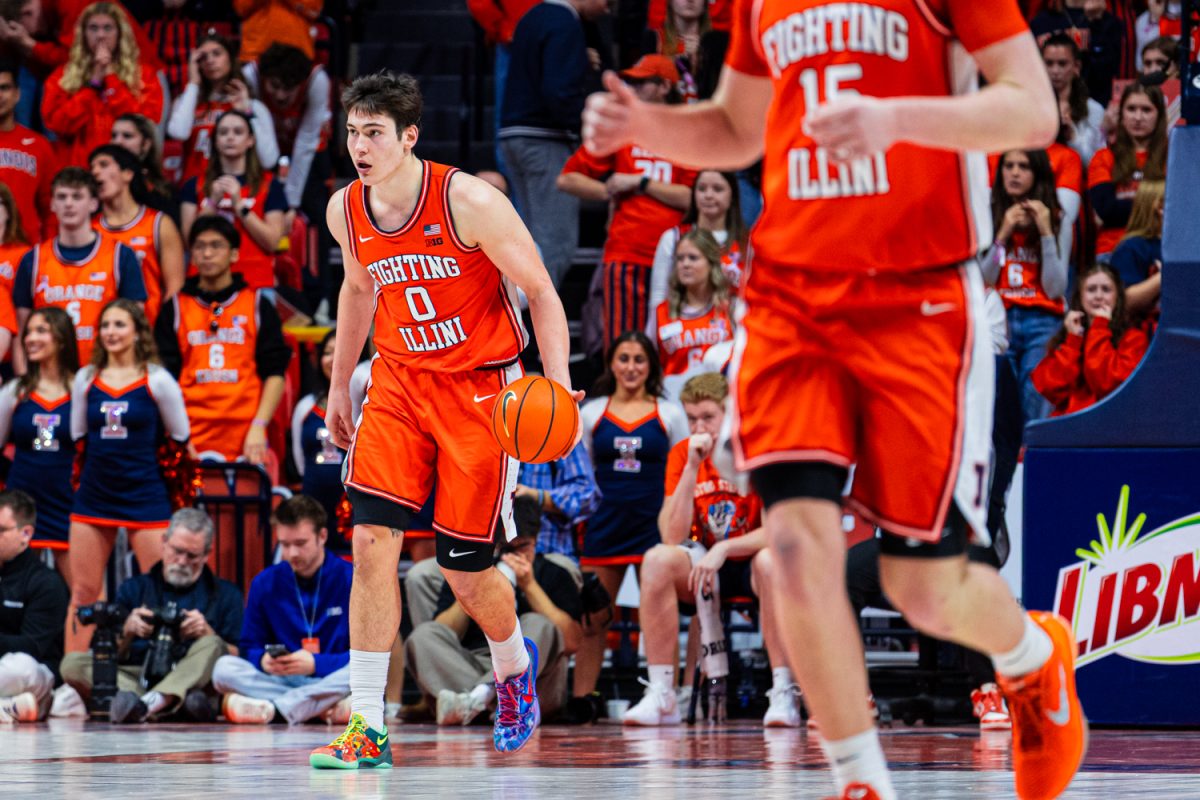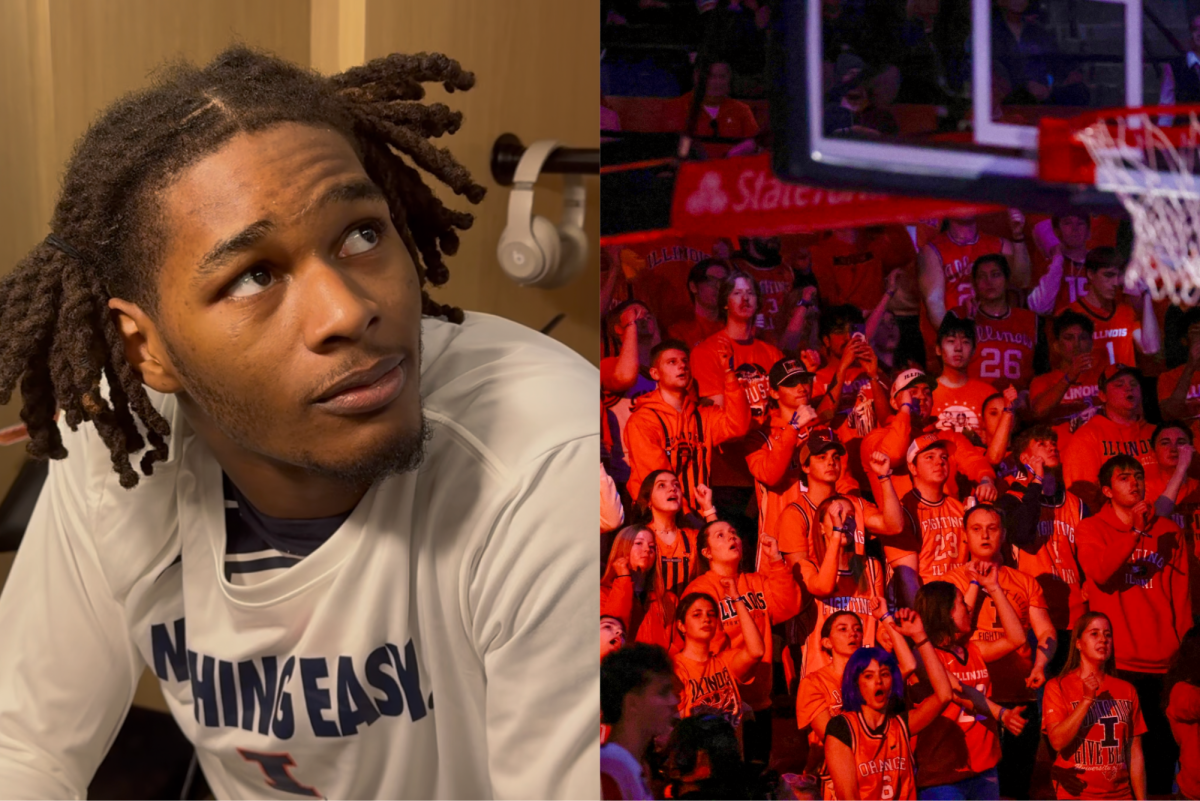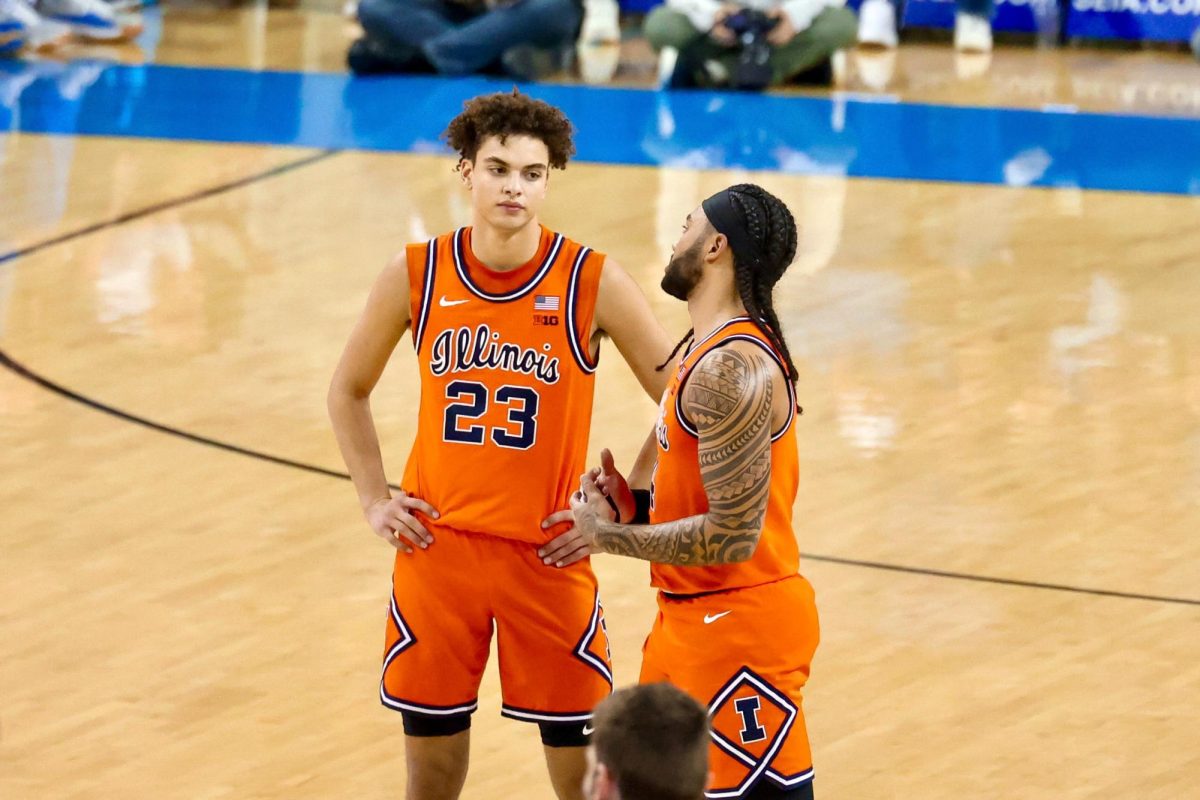The Associated Press covers just about every topic imaginable. However, one of its most acute functions is polling for college sports.
Just about everyone has seen an AP poll ranking. They’re featured throughout the broadcasts of hundreds of college sporting events weekly. The number next to a team’s name on the broadcast works wonders for entertainment.
Sure, those who follow sports don’t need extra persuading to be excited for No. 5 Georgia at No. 1 Texas, but those rankings add extra juice. Without any background knowledge, a viewer can identify the importance of a game. A ranked team beating an unranked team is easily tossed aside as a likely outcome. An unranked team leading against a ranked team tells the viewer to stick around for a potential upset. A showdown between two ranked teams communicates that high-level play can be expected.
However, the AP poll rankings are far from perfect in any of the three sports they cover. The results of the football, men’s basketball and women’s basketball polls are scrutinized each week, and there is always something wrong with them. Each voter is subject to their own biases, whether it be boosting the home team up a couple of spots or succumbing to media narratives just like everyone else.
Additionally, the NCAA determines playoff seeding on its own and routinely differs from the AP poll in drastic ways. With that said, should the importance of AP polls be thrown away, or do they hold an important place in collegiate sports?
Get The Daily Illini in your inbox!
Conor (Throw away): As a kid, I never doubted the AP poll. If the TV had a number next to a school on the score bug, that number was the truth. However, time and time again, AP polls let me down.
It always feels incredibly inconsistent. Is it a power ranking meant to capture the best teams at a given moment? Does it account for the entire season? Obviously, it’s a bit of both, but the voters are constantly flip-flopping between which one matters more. Voters also hate to admit when they are wrong. This leads to teams who have done nothing to earn high rankings remaining at the top because it’s where they started.
Voting is always going to be biased, and the AP has done a good job of trying to mitigate bias by weighing the opinions of 62 different individuals from across the country. The AP is also very good about transparency, providing each voter’s full ballots and affiliation weekly.
However, it doesn’t really mean anything. All of the sports that use AP polls turn to their own method of selection when it comes time for the playoffs. Football’s playoff committee has started to put out its weekly rankings, and there are already major discrepancies between that and the AP poll. Why should we care about rankings that aren’t even a strong indicator of how postseason seeding will shake out?
Ben (Throw away): The AP poll, in general, is one of the more pointless things in college athletics. I mean, it literally could not matter less than it does, other than the networks making money off of entertainment value. If you believe that the AP poll truly takes an objective stance on team records, strength of schedule, etc., then maybe there is no persuading you.
Let’s take a local example. The Illini-affiliated AP football voter consistently had Illinois ranked far higher than most other voters. These guys have agendas to push and schools they watch much more frequently than all the others. That influences decisions.
The second reason to throw the AP poll away is that it doesn’t factor anything late in the season. Every Division I sport has a committee to decide the playoffs. The AP poll is for the fans and really does not represent how good a team is throughout the season.
The AP poll causes potentially worthy teams to have to work harder. What even is a “preseason ranking?” Those are as unnecessary as ever due to the roster fluctuations of college sports.
We truly have no idea how teams will gel or play together, and a preseason ranking collection of what a couple of people think your team will be like could be the difference in making a tournament or not. If two teams finish 20-12 and have the same resume, but one was a preseason top-10 team and the other was No. 60, chances are the preseason top-10 team will still have the edge over the original No. 60.
My final reason is that the AP poll promotes bad journalism. Brian Windhorst — one of basketball’s most popular journalists — recently called out poor journalism around the NBA. They only follow cool highlights and no longer tell stories. I believe the AP poll contributes to the same with NCAA sports.
Everyone gets so caught up in talking about the number in front of every team’s name when it really doesn’t matter until Selection Sunday for basketball or Week 11 for the College Football Playoff rankings.
When you wait to distribute rankings, you have an actual analysis for every team. The anticipation of waiting for your team’s ranking immediately goes up, and you promote more storytelling throughout the season rather than just crying about why a team is only No. 18 when their AP ranking doesn’t even matter for the postseason.
Sahil (Stay): As someone who watches and covers a specific team all season long, the AP poll is frustrating because I don’t fully understand the decision to rank certain teams higher that are clearly less talented and performing worse. However, I cannot say that the poll is completely useless.
Early in a season, the AP poll will almost always make certain fanbases mad. However, if you look at the poll later in the season, it usually makes more sense. Either way, someone will always be unhappy with the rankings; that will never change.
I am in favor of keeping it more as fan service than something pundits of certain sports worry about. A team being ranked brings out a sense of pride in a fanbase. Upsets based on rankings can bring about some of the most memorable sports moments of the year.
And yes, while the system may be flawed, there is a motivating factor that the AP poll brings to teams. If a team believes they should be ranked and they’re not, it can motivate them. This makes certain games more anticipated and has extra energy, both in the game and in the stands.
All in all, the AP poll is not perfect, just like every ranking system in sports. However, it creates a competitive atmosphere and energizes fans as they support their teams. That energy makes college sports one of the most lively and unique athletic environments we have.
Tess (Stay): I’ve had my fair share of conversations regarding the AP polls. While I’ve critiqued these polls multiple times, I believe they should remain in the NCAA for several reasons.
First, I like that the AP polls bring excitement and anticipation to athletes and fans. After your favorite team performs well, it’s so fulfilling to see them land in the AP top 25. It’s hard work getting national recognition, and having a ranking right in front of the name is thrilling to see.
Also, the competition and intensity of these ranked matchups give people even more of a reason to be glued to their couch and hooked on a sporting event. Just a few weeks ago, No. 1 Oregon and No. 2 Ohio State reeled in over 13 million viewers. Not only that, but this top-five matchup gave exactly what football fans wanted to see: a close battle between some of the fiercest competitors.
These ranked games bring so much energy to college sports, and that’s what makes collegiate athletics so beautiful. There’s intensity, rivalries and some of the most electrifying upsets come from these rankings. Even though Alabama isn’t ranked as high now, Vanderbilt’s victory over the then-No. 1 ranked school still illustrates the joy and rush from these games.
I am well aware of the flaws these polls have. It should not be the most important factor in determining which teams are good and which aren’t. However, if people want to look at further elements to evaluate teams, they can explore things like NET rankings and in-depth statistics that analyze teams’ legitimate performances. At the end of the day, AP polls are eye-catching conversation starters, not the end-all-be-all for establishing talent in collegiate sports.



